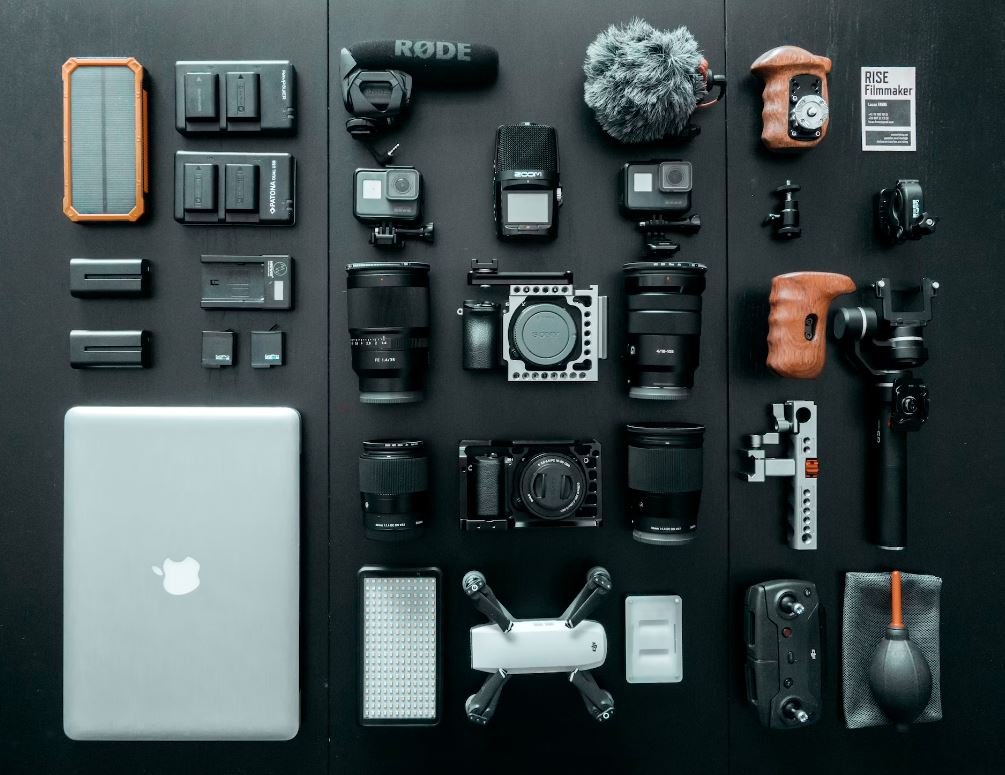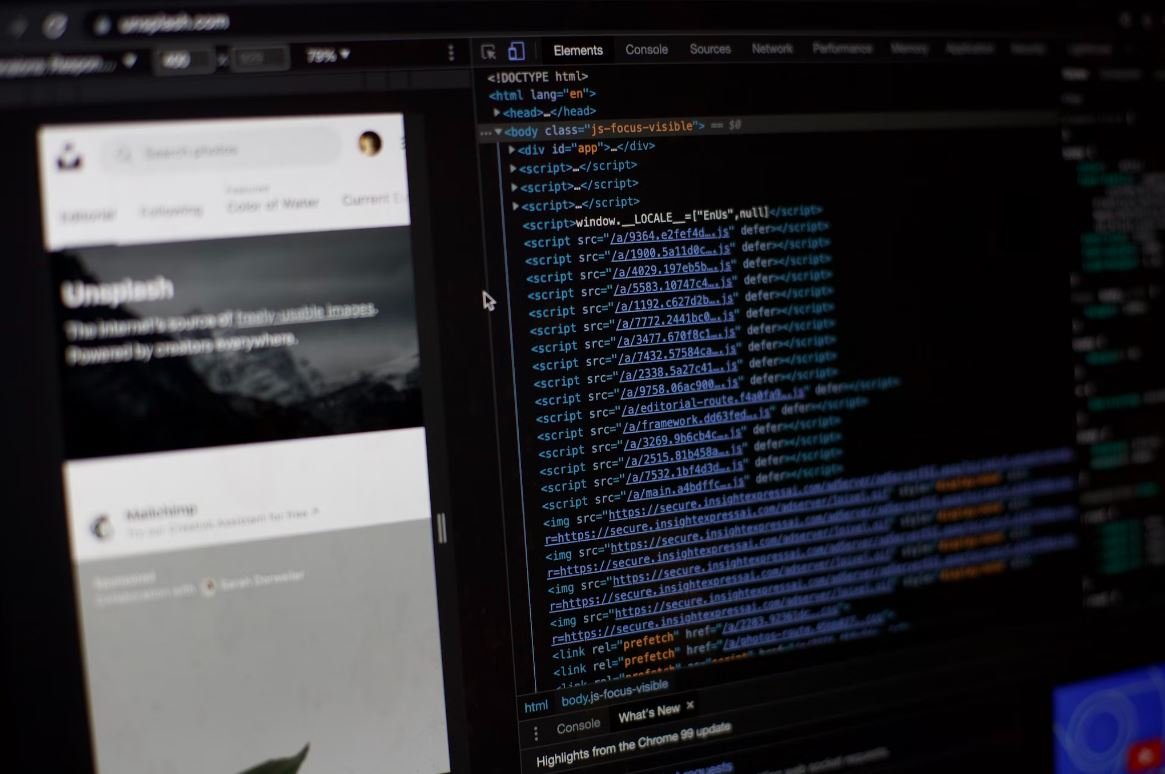Artificial Intelligence Logo
Artificial Intelligence (AI) is revolutionizing many industries, and logo design is no exception. AI-powered logo generators are becoming increasingly popular, offering businesses and individuals an efficient and cost-effective way to create visually appealing and unique logos. This article explores the benefits of using AI logo generators and highlights how they are transforming the logo design process.
Key Takeaways:
- AI-powered logo generators offer an efficient and cost-effective way to design logos.
- These tools can generate unique and visually appealing logos in minutes.
- AI logo generators are user-friendly and don’t require any design skills.
- Customization options allow users to tailor the logo to their preferences.
- AI-generated logos can be easily modified and adapted as needed.
The Power of AI in Logo Design
AI logo generators leverage machine learning algorithms to analyze millions of existing logos, designs, and trends to create inspired logo concepts. They provide users with a wide range of options, fonts, icons, and colors to choose from, ensuring that each logo is unique and tailored to the user’s needs. *These advanced algorithms allow AI logo generators to produce compelling logos quickly and efficiently, saving businesses time and money.*
How AI Logo Generators Work
AI logo generators use a combination of natural language processing and computer vision technologies to understand the user’s needs and preferences. They analyze keywords, industry-specific symbols, and color schemes to generate relevant logo concepts. Once the user selects a concept, the generator fine-tunes the design by applying various design principles, such as balance, symmetry, and proportion. *The result is a seamless combination of human creativity and machine intelligence in logo creation.*
Benefits of Using AI Logo Generators
Using an AI logo generator offers several advantages over traditional logo design methods. Firstly, it eliminates the need to rely on expensive graphic designers or design agencies. AI logo generators are cost-effective solutions that fulfill the design requirements of businesses with limited budgets. Secondly, these tools provide users with creative freedom and control over the logo design process. Users can experiment with different concepts, fonts, colors, and layouts until they find the perfect combination. *AI logo generators empower individuals without design expertise to create professional-looking logos with ease.*
Table 1: Comparison of Traditional vs. AI Logo Design
| Traditional Logo Design | AI Logo Generators | |
|---|---|---|
| Cost | Expensive | Affordable |
| Time | Days or weeks | Minutes |
| Customization | Limited revisions | Unlimited options |
Table 2: Popular AI Logo Generator Tools
| Logo Design Tool | Features |
|---|---|
| Canva | Wide range of templates, icons, and fonts |
| DesignEvo | Drag-and-drop functionality, customizable colors |
| Hatchful | Industry-specific logo templates |
AI Logo Generators: A Growing Trend
As technology advances, AI logo generators are becoming more sophisticated and accurate in understanding users’ design preferences. These tools are constantly improving their algorithms and expanding their databases to provide users with an even wider range of design possibilities. *The increasing adoption of AI logo generators by businesses and individuals demonstrates the effectiveness and potential of AI in transforming the logo design industry.*
Table 3: Impact of AI on Logo Design
| Before AI | With AI | |
|---|---|---|
| Design Time | Hours to days | Minutes to hours |
| Design Cost | Expensive | Affordable |
| Design Flexibility | Limited | Highly customizable |
Final Thoughts
AI logo generators have revolutionized the logo design process. By harnessing the power of artificial intelligence, businesses and individuals can create visually appealing and unique logos in a cost-effective and efficient manner. *These tools democratize design and empower users to have more control over their brand identity.* Whether you are a small business owner or an aspiring entrepreneur, AI logo generators can help you design a professional logo that represents your brand effectively.

Common Misconceptions
AI Is All About Robots
One common misconception about artificial intelligence is that it is all about robots. While robots might be a popular manifestation of AI, AI encompasses a much broader range of technologies and applications.
- AI is used in virtual assistants like Siri and Alexa
- AI powers recommendation systems used by platforms like Netflix and Amazon
- AI is employed in self-driving cars and facial recognition technologies
AI Will Replace Human Jobs
Another misconception is that AI will completely replace human jobs, leading to mass unemployment. While AI can automate certain tasks, it is designed to augment human capabilities rather than replace them.
- AI can automate repetitive and mundane tasks, freeing up time for employees to focus on more complex and strategic work
- AI can provide data-driven insights to aid decision-making, increasing efficiency and productivity
- AI can create new job opportunities by driving innovation and enabling the development of new industries
AI Possesses General Intelligence
There is a misconception that AI possesses general intelligence, similar to that of humans. However, most AI systems are designed for specific tasks and lack the ability to generalize knowledge across different domains.
- AI can excel in narrow domains like image recognition or natural language processing
- AI systems may struggle when faced with unfamiliar situations or tasks outside their trained scope
- AI requires large amounts of data and repeated training to perform specialized tasks effectively
AI Is Infallible
Some people believe that AI is infallible, capable of making accurate decisions without any errors or biases. However, AI systems are not immune to biases and can be limited by the quality and inclusivity of the training data.
- AI can reflect existing biases present in the training data, potentially leading to unfair or discriminatory outcomes
- AI can make mistakes if the input data is misleading or ambiguous
- AI decision-making should be monitored and regularly audited to ensure fairness and avoid unintended consequences
AI Is a Distant Future
It is a common misconception that AI is a technology of the distant future. In reality, AI is already present in various aspects of our daily lives and continuing to evolve rapidly.
- AI is integrated into smartphone apps, social media algorithms, and online customer support systems
- AI advancements are driving breakthroughs in healthcare, finance, manufacturing, and other industries
- AI research and development are ongoing, with new applications and possibilities emerging constantly

Benefits of Artificial Intelligence in Logo Design
Artificial intelligence (AI) has revolutionized many industries, including logo design. AI-powered logo generators have become popular tools for businesses to create unique and visually appealing logos. By leveraging algorithms and machine learning, AI can analyze millions of design elements and generate logos that align with a brand’s identity. Here are ten examples that showcase the immense potential of AI in logo design:
1. Dynamic Color Palette
AIs can analyze a brand’s color preferences and generate a dynamic color palette for logo design. As the brand evolves, the AI can update the palette to reflect the changes, ensuring the logo continues to resonate with the target audience.
2. Responsive Design Adaptation
AI can dynamically adapt logos to different screen sizes and devices. This ensures that the logo remains visually appealing and legible, whether it’s displayed on a smartphone, tablet, or desktop computer.
3. Semantic Symbolism
With advanced semantic analysis, AI can generate logos that incorporate meaningful symbols relevant to a brand’s industry, values, or history. This helps create a logo that resonates with the target market on a deeper level.
4. Cultural Relevance
By analyzing local cultural elements and preferences, AI can generate logos that are culturally relevant to specific geographic regions. This ensures that the logo is well-received and relatable to audiences worldwide.
5. Typographic Exploration
AI can experiment with various fonts, letterforms, and typography styles to create visually stunning and harmonious logo designs. This enables businesses to have a wide range of options to choose from during the logo creation process.
6. Abstract Representation
Using deep learning techniques, AI can generate abstract logo designs that capture the essence of a brand without relying on literal or explicit imagery. Such logos tend to be versatile and can adapt to various contexts and brand uses.
7. Competitive Analysis
AIs can analyze competitors’ logos to avoid similarities and create distinctive brand identities. By understanding the existing landscape, AI ensures that the generated logos are unique and stand out in a crowded market.
8. Customization Options
AI-powered logo generators can allow users to customize various elements such as colors, symbols, and layouts, making the logo creation process more interactive and engaging.
9. Real-time Feedback
Through machine learning, AI can provide real-time feedback on logo designs, suggesting improvements or highlighting potential issues. This enables businesses to make informed decisions during the design process.
10. Big Data Insights
By analyzing vast amounts of visual and textual data, AI can identify design trends and preferences, helping businesses stay ahead of the curve and create logos that are both captivating and timeless.
In the dynamic world of logo design, artificial intelligence offers countless possibilities. From generating unique color palettes to analyzing cultural relevance, AI takes logo design to new levels of efficiency and creativity. By harnessing the power of AI, businesses can create logos that resonate with their target audience and embody their brand identity.
Frequently Asked Questions
What is artificial intelligence?
Artificial intelligence (AI) refers to the simulation of human intelligence in machines that are programmed to think and learn like humans. AI enables machines to perform tasks that typically require human intelligence, such as problem-solving, speech recognition, and decision-making.
How does artificial intelligence impact logos?
Artificial intelligence can be used in logo design to automate and enhance the creative process. AI algorithms can analyze existing logos, identify design patterns, and generate new logo concepts based on user-defined criteria. It can save time and effort for designers and provide unique and customized solutions.
What are the benefits of using artificial intelligence in logo design?
Using artificial intelligence in logo design can offer several advantages, including increased efficiency, cost savings, and improved creativity. AI tools can generate multiple design options quickly, detect trends in the market, and provide data-driven insights to create logos that resonate with target audiences.
Are artificial intelligence-generated logos original?
Yes, artificial intelligence-generated logos can be original. While AI algorithms analyze existing designs and patterns to generate new concepts, the output is unique and not a direct copy. Additionally, designers can further customize and refine the AI-generated logos to give them a personal touch and ensure their originality.
Can artificial intelligence create logos from scratch?
Artificial intelligence algorithms can create logos from scratch by analyzing various design elements and patterns. By learning from vast amounts of logo data, the AI can generate new logo ideas based on user-defined criteria, such as industry, color palette, and style preferences, resulting in unique logo designs.
How accurate are artificial intelligence logo design tools?
The accuracy of artificial intelligence logo design tools depends on the complexity of the task and the quality of the AI algorithm. While AI tools are continuously improving, they may still require human intervention to fine-tune the generated designs and ensure they meet the specific requirements and creativity expected from a professional logo.
Is it necessary to have design skills to use artificial intelligence logo design tools?
No, it is not always necessary to have design skills to use artificial intelligence logo design tools. AI tools can be user-friendly and intuitive, allowing non-designers to create logos with minimal design knowledge. However, having basic design understanding and an eye for aesthetics can help in refining and customizing the AI-generated logo designs.
Can artificial intelligence logos replace human designers?
Artificial intelligence logos cannot completely replace human designers. While AI tools can automate certain aspects of the logo design process, human designers bring creativity, artistic expertise, and the ability to understand complex client requirements. Combining the power of AI with human design skills can lead to the best results in logo creation.
Are there any ethical concerns with artificial intelligence-generated logos?
There may be some ethical concerns with artificial intelligence-generated logos. One concern is the potential for plagiarism or unintentional similarities to existing logos. It is crucial to ensure that the AI-generated logos do not infringe on copyrights or trademarks. Additionally, considering diversity and avoiding biased representations in AI-generated logos is important to maintain ethical standards.
What is the future of artificial intelligence in logo design?
The future of artificial intelligence in logo design holds great potential. As AI algorithms continue to improve, they can assist designers in generating innovative and unique logo concepts quickly and efficiently. Additionally, AI can provide insights and predictions based on market trends and user preferences, enabling designers to create logos that effectively communicate brand values and resonate with target audiences.




